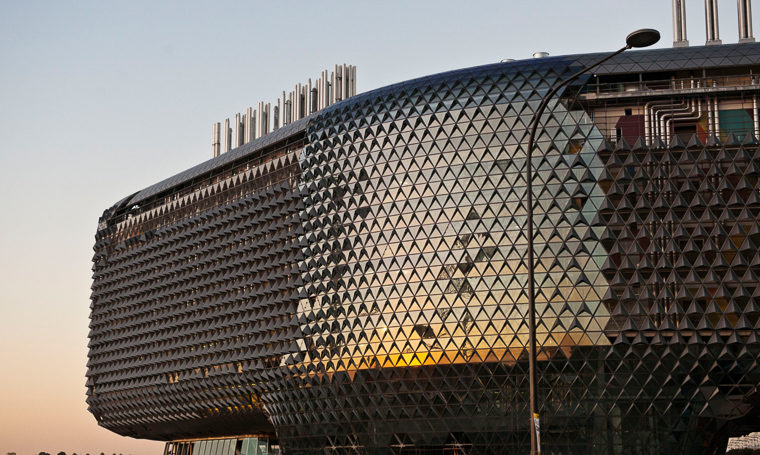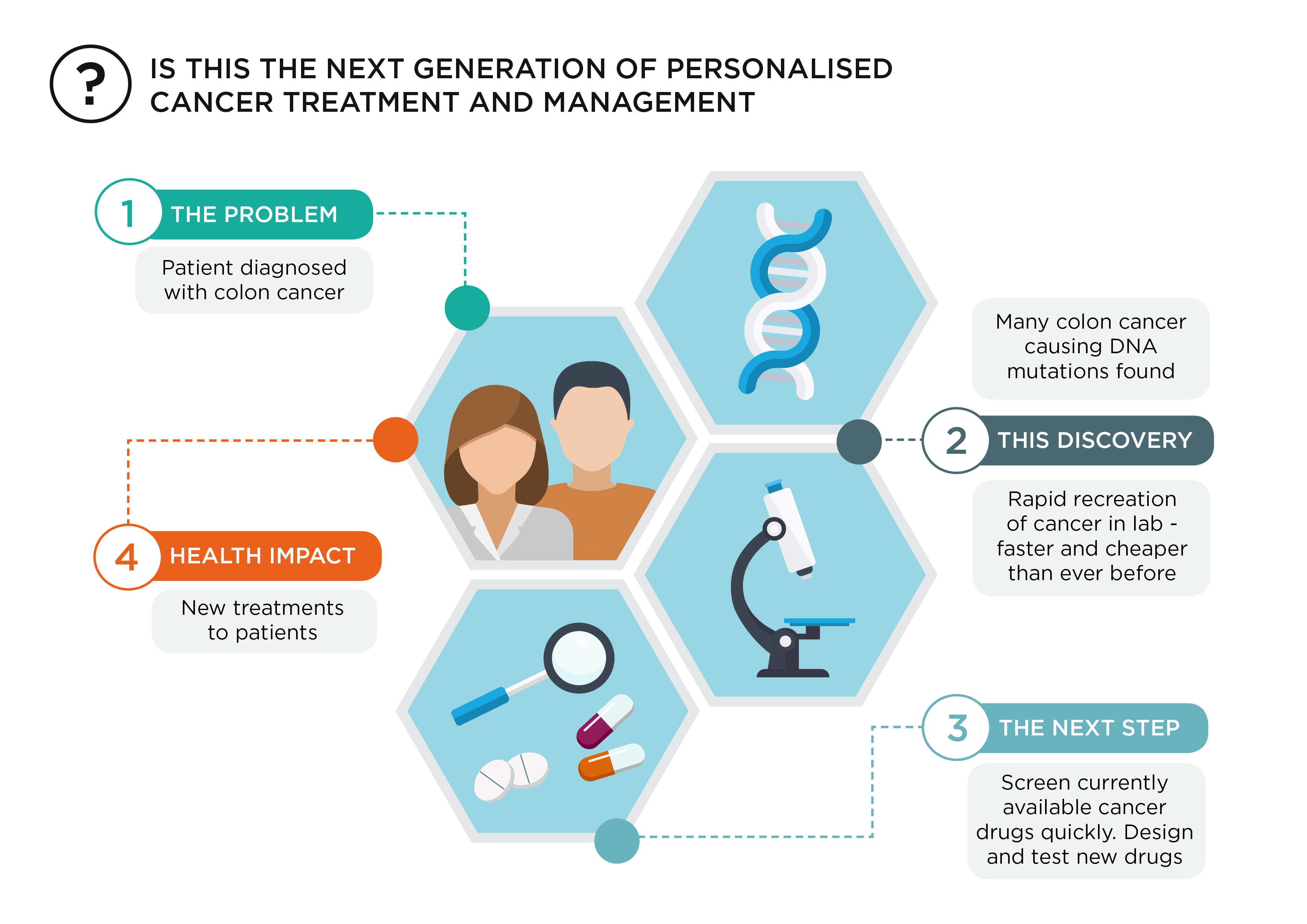Personalised bowel cancer treatment a step closer
Health & Medical
The discovery of a fast and cost effective way to recreate cancer in the lab will lead to better drugs and treatments.

Sign up to receive notifications about new stories in this category.
Thank you for subscribing to story notifications.

Researchers at the South Australian Health and Medical Research Institute (SAHMRI) and the University of Adelaide have discovered a faster way to determine which DNA mutations cause human bowel cancer, an important next step on the path toward personalised cancer treatment.
Study Co-Lead Dr Susan Woods said the research combined the latest advances in genome sequencing with CRISPR gene editing technology to establish a new preclinical pipeline where different DNA changes were engineered into the normal colon in rapid time, cutting years off traditional laboratory experiments.
“We can now deliver the same outcomes in less than a quarter of the time, meaning we can take research from the bench to the patient far more rapidly, and with far less cost,” Dr Woods said.
“Now, we have rapidly made new models of bowel cancer that mimic the complex genetic (DNA) changes that we see in human tumours and recapitulate features of the human disease
“Our new technology allows us to screen and repurpose existing drugs which may not have been tested in bowel cancer, to screen potential new life-saving drugs as they are developed, and to improve bowel cancer detection, by being able to watch the cancer develop in real time.”

According to Dr Woods, other models were valuable but were slow, required complicated in vivo breeding and had a prescribed number and sequence of genetic alterations.
Once established, the growing cancers were then monitored in the SAHMRI imaging centre by colonoscopy, CT, special in vivo imaging and PET.
The research, published today in Gut, concentrated on serrated colorectal cancer (CRC), which accounts for about 25 per cent of cases and includes tumours that are among the most treatment resistant and have the worst outcomes.
More than 4000 Australians die from bowel cancer each year and it remains the second leading cause of cancer-related mortality in the United States.
The Gastrointestinal Cancer Biology Group at SAHMRI are working to understand the genetic drivers of bowel cancer, with a special interest in those cancers which are the hardest to treat, and which have the poorest prognosis. The group has established the Australian Living Organoid Alliance (ALOA) to coordinate national, multi-institutional colorectal organoid research and practice across Australia.
Jump to next article




